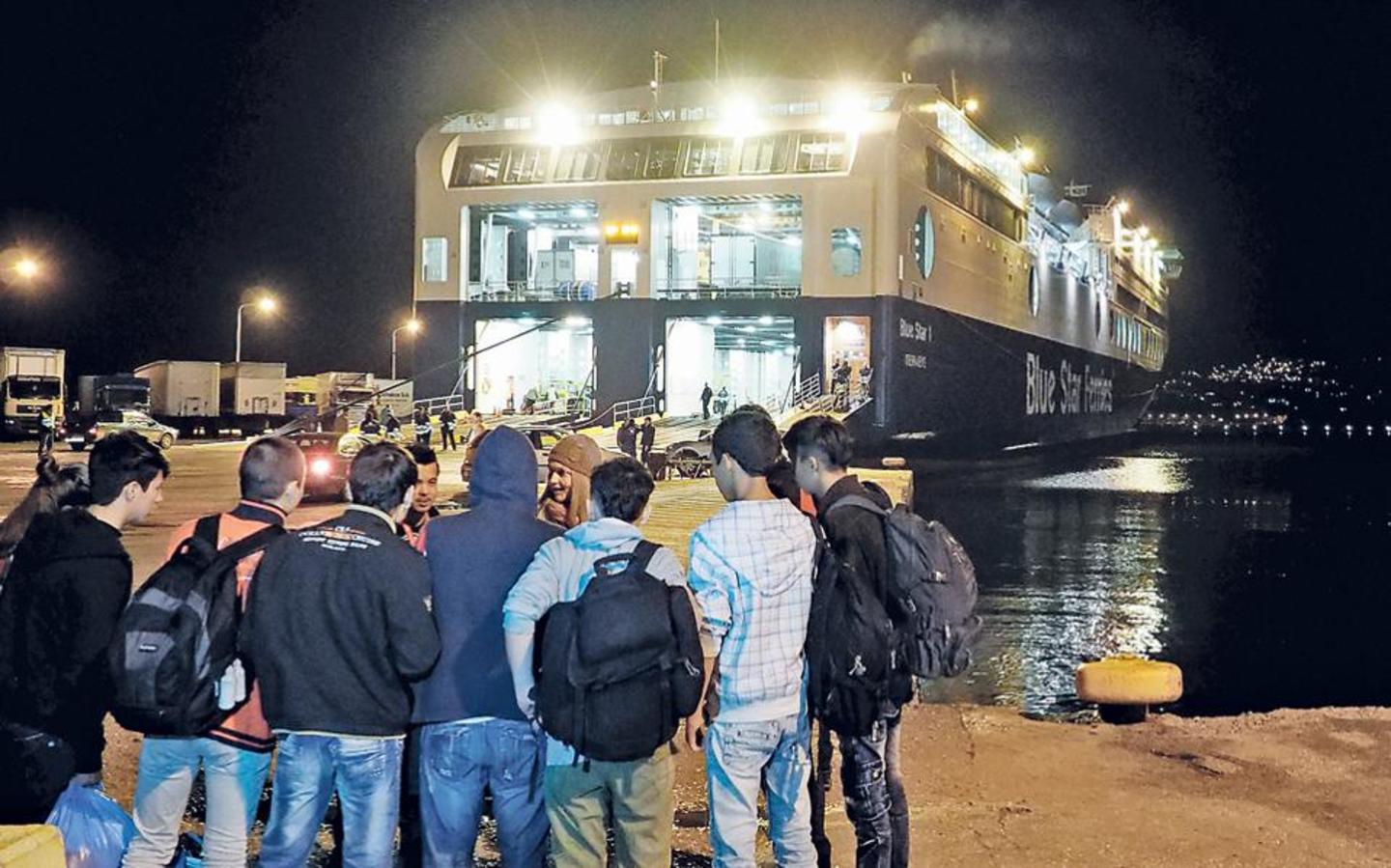Through this familiarisation process, Nefeli Bami, the guardian of a nine-year-old unaccompanied Syrian, tried to communicate with him. The 30-year-old social anthropologist responded to the call of the Greek NGO, METAction, to form a guardianship network for unaccompanied children from third countries, arriving in ever increasing numbers in Greece. Following a series of intensive training seminars, Ms Bami assumed her role in Athens two weeks ago:
"I am responsible for two children, a nine-year-old from Syria and a 15-year-old from Afghanistan, and I am expecting a third child in a few days," she explains.
Crucial role
The duties of each guardian, who under the pilot programme will be responsible for three to five children, include legal representation at all stages from the moment a child crosses the borders. Priority is given to girls irrespective of age, boys under 15 and children belonging to vulnerable groups.
"The need for guardians emerged through the process of escorting unaccompanied minors, which began tentatively in late 2011," explains the vice president of METAction, Ms Laura Pappas. Until then the police stations in the country's border gates were filled with young children who needed to be moved to safe accommodation centres - which are stretched to the limits given the dramatic upsurge in arrivals.
"On the one hand they had entered the country illegally, on the other, they could not be detained, nor released due to the fact that they were minors. Outside the police stations there were traffickers lurking," continued Ms Pappas.
"The guardianship of minors is automatically assigned to the Public Prosecutor, but given capacity constraints, this role needed to be delegated to qualified personnel. Most of the employees in Social Welfare or Local Administration refused citing security concerns."
One notable change has been that the arrivals are no longer exclusively boys and teens; increasing numbers of unaccompanied girls and children as young as three and four years old are also arriving. The youngest child encountered was only 18 months of age.
"That's how we formed escort teams, which always involve a social worker and an interpreter, depending on the nationality of children who are to be accompanied," explained Ms Pappas. During these lengthy procedures, support staff realised the need for one contact person to accompany the children throughout their stay in Greece and serve a link between the various agencies and support services.
Sharing experience
Before embarking on the project, METAction travelled to Belgium, the Netherlands and Norway, where although the number of incoming immigrants is lower, systems of guardianship have been evolving over recent years. The project is funded by Iceland, Liechtenstein and Norway through the EEA Grants as part of the ‘We are all Citizens’ programme, implemented by the Bodossaki Foundation.
The role of the guardian starts at the port of entry. The guardian is responsible for accompanying the child throughout all the the initial screening and identification processes with the authorities, and during the process to find a place in a reception facility. They should accompany the children - if required - to the asylum service, at the hospital, to register the children at a Greek school, even to start the family reunification process, in cases where the parents have been found or if they live in another European country.
Even after the procedural arrangements, the guardian is required to maintain a constant presence in the life of the child, with at least two visits per month.
"However, it is important to be clear that guardianship does not imply sponsorship. The prosecutor remains officially the guardian, but delegates the responsibility to people in our network," said Ms Pappas.
In order to apply to act as a guardian, METAction requires some specific qualifications: humanities degree, three years’ experience with children, a knowledge of English, and for the candidate to be over 27 years of age.
"The response was impressive, we received 220 CVs," says Mrs Pappas. Eighty people were selected, of which the first 25 were trained. The first 12 guardians have gradually starting working, nine of them in Athens and one in Orestiada, Samos and Lesbos respectively. “We were touched by the significant response to this difficult role. Many applied without being aware that a symbolic fee is offered," she concluded.
This article was reproduced courtesy of Ioanna Fotiadi. It was originally published in Greek in the online edition of the Greek daily newspaper Kathimerini.
